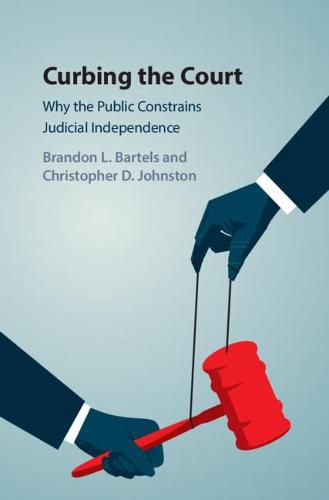Readings Newsletter
Become a Readings Member to make your shopping experience even easier.
Sign in or sign up for free!
You’re not far away from qualifying for FREE standard shipping within Australia
You’ve qualified for FREE standard shipping within Australia
The cart is loading…






What motivates political actors with diverging interests to respect the Supreme Court’s authority? A popular answer is that the public serves as the guardian of judicial independence by punishing elected officials who undermine the justices. Curbing the Court challenges this claim, presenting a new theory of how we perceive the Supreme Court. Bartels and Johnston argue that, contrary to conventional wisdom, citizens are not principled defenders of the judiciary. Instead, they seek to limit the Court’s power when it suits their political aims, and this inclination is heightened during times of sharp partisan polarization. Backed by a wealth of observational and experimental data, Bartels and Johnston push the conceptual, theoretical, and empirical boundaries of the study of public opinion of the courts. By connecting citizens to the strategic behavior of elites, this book offers fresh insights into the vulnerability of judicial institutions in an increasingly contentious era of American politics.
$9.00 standard shipping within Australia
FREE standard shipping within Australia for orders over $100.00
Express & International shipping calculated at checkout
What motivates political actors with diverging interests to respect the Supreme Court’s authority? A popular answer is that the public serves as the guardian of judicial independence by punishing elected officials who undermine the justices. Curbing the Court challenges this claim, presenting a new theory of how we perceive the Supreme Court. Bartels and Johnston argue that, contrary to conventional wisdom, citizens are not principled defenders of the judiciary. Instead, they seek to limit the Court’s power when it suits their political aims, and this inclination is heightened during times of sharp partisan polarization. Backed by a wealth of observational and experimental data, Bartels and Johnston push the conceptual, theoretical, and empirical boundaries of the study of public opinion of the courts. By connecting citizens to the strategic behavior of elites, this book offers fresh insights into the vulnerability of judicial institutions in an increasingly contentious era of American politics.